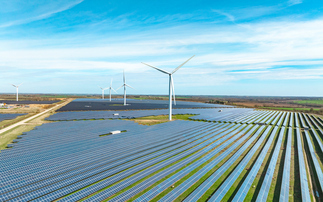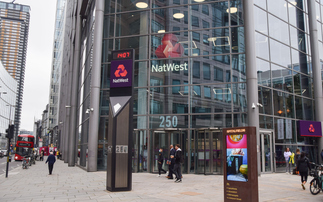Firms are failing to place the SDGs at the core of their strategies, despite sizeable benefits for addressing risk and innovation, PwC analysis suggests
The decade may be coming to an end, but concerted efforts to meet the Sustainable Development Goals have barely started. As we enter the 2020s, the challenge is greater and clearer than ever.
It bears repeating that the world is currently far off track from achieving the 17 UN sustainability targets by 2030. The UN has issued repeated warnings that, despite almost five years having passed since 193 countries agreed to implement the goals - almost a third of the allotted time to achieve them - not a single nation is on schedule. The financing gap for achieving the goals stands at around $2.5tr a year, yet the business incentive is clear: the SDGs promise to unlock around $12tr of market opportunities. But progress is being hampered by uneven economic growth, rising debt levels and falling direct foreign investment, the UN said recently.
So with only 10 years now to meet the deadline across all metrics, it is worth taking stock of where businesses are with the sustainability goals, and what companies need to do to accelerate their efforts.
New PwC analysis of over 1,100 published reports from listed, private and public sector organisations in more than 31 countries indicates there is a great deal of work still to be done if business is to contribute meaningfully to national SDG efforts.
But the analysis released on Tuesday does show there is at least some progress being made. Almost three quarters - 72 per cent - of organisations were found to have referenced the SDGs in their public reporting, and just over half in their annual company report. Of those firms referencing the SDGs, 59 per cent did so in their sustainability report, and just over half did so in their full company report.
And there are other signs that the SDGs are moving up the executive agenda, perhaps spurred by strengthening regulation and rising interest in environmental social governance (ESG) issues among investors and stakeholders. According to PwC, 21 per cent of company chair statements for the year now include a reference to the SDGs.
But with just a decade left until 2030, rising awareness and general references to the global sustainability agenda in company documents and boardrooms is far from adequate if the targets are to be met.
"Companies are starting to prioritise goals they believe are relevant to them, but we've little evidence of joined up thinking on how the goals are approached," explains Louise Scott, PwC's global lead on the SDGs. "Goals related to water, land and energy have strategic opportunities and risks for almost every sector, yet are not widely identified as considerations in future business strategies and investments."
PwC's analysis suggests far more detail and oversight is required in a majority of companies' SDG work in order to spur concrete and effective action. Just 25 per cent of companies mentioned the SDGs in reporting of their business strategy, suggesting many still don't place the sustainability agenda at the core their company. Only 14 per cent of companies mentioned a specific SDG, with the most common referenced being number eight on decent work and economic growth. Targets related to natural resources and wellbeing were rarely mentioned at all. Most worryingly of all, just one per cent of company reports actually set out quantitative measures to demonstrate their progress towards any of the SDGs.
"While awareness is high, unless integrated measurement and reporting takes place, progress and relevant policy measures can't be identified at the level of detail necessary to really drive progress on reaching the goals," adds Scott.
Overall, it suggests the business opportunity of the SDGs is still not being fully recognised within companies. But as Scott emphasises, businesses need to remember that "the goals are practical" - they are not just a nice-to-have front for sustainability, but an actionable framework to help drive purpose and value throughout a company, as well as offering a magnifying glass for future threats and opportunities.
"They are both a risk and opportunity management framework from businesses' point of view," she says. "While companies don't need to specifically reference goals to be acting on them, we should be seeing the identification of issues that underpin them and strategies to address them, and unfortunately we're not."
Yet beyond identifying and managing risk, the SDG agenda can also boost the bottom line, by providing a catalyst for innovation and new products. By embracing sustainable innovation, companies can use the SDGs as a means to secure new market opportunities, PwC's analysis argues. In a business environment in which companies are increasingly expected to be values-driven in order to secure the support of consumers and stakeholders, the SDGs can also serve as a powerful recruitment tool for a new generation of employees whose values align with the goals, and all while helping to build greater trust with investors, regulators and customers.
"Adopting the SDGs in an integrated way brings a unique perspective to a company's sustainability activities," the report states. "It enables companies to track their progress through a uniform framework that is understood by a variety of stakeholders and a lens to challenge and evaluate business strategy from both a financial and non-financial perspective."
Overall progress on the SDGs remains sluggish at best, both from a global perspective and also within the business community, which - as PwC's latest findings show - is still failing to place the SDGs are the front and centre of company strategies. As a new decade begins, a greater clarity of purpose is needed to deliver on the goals.









